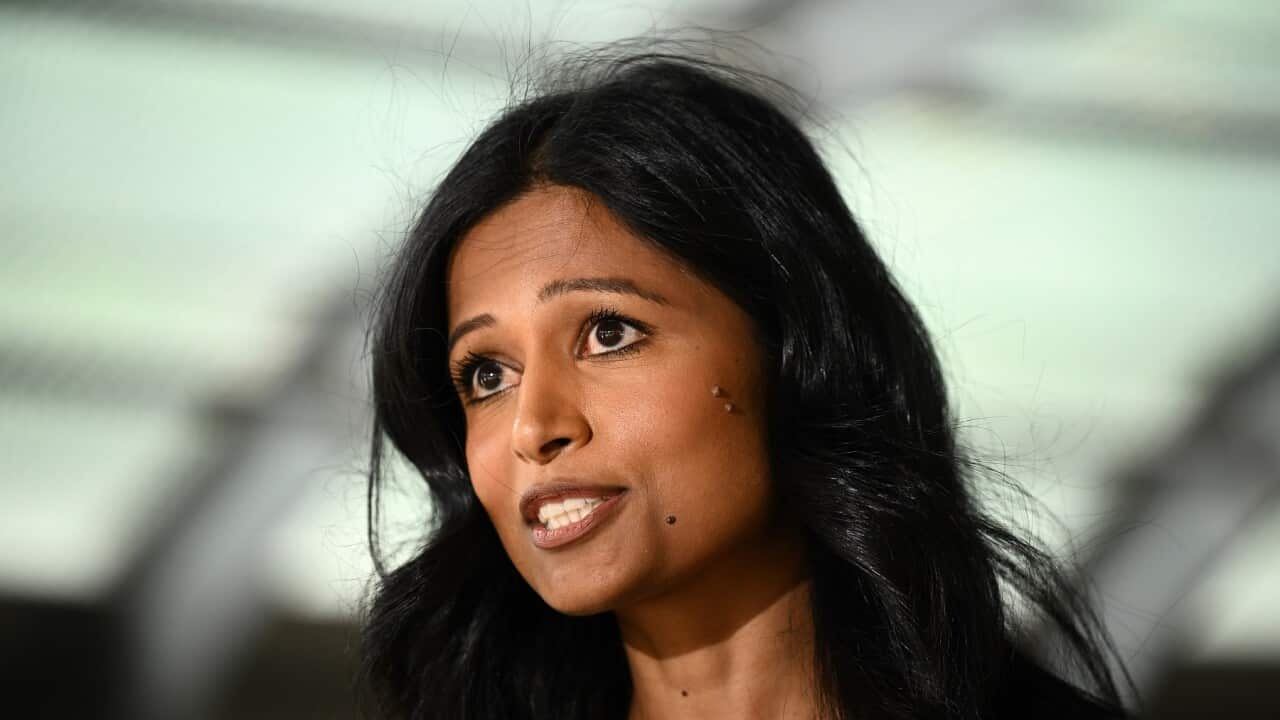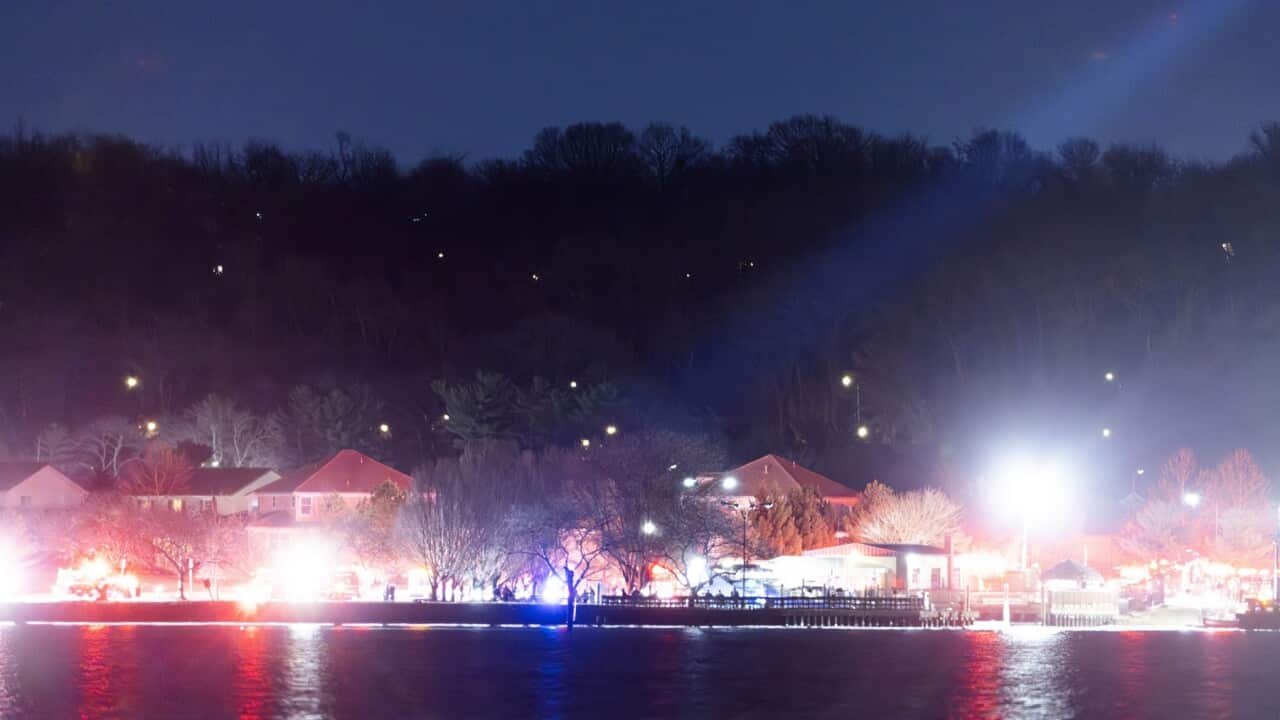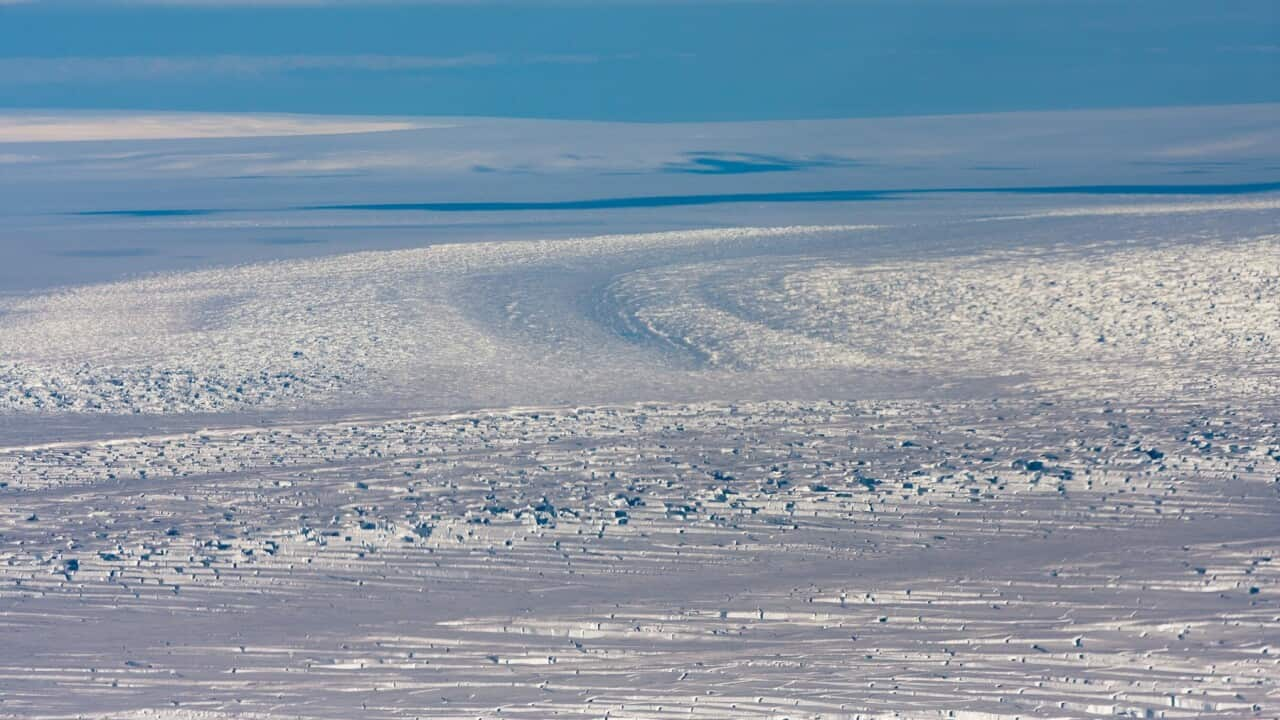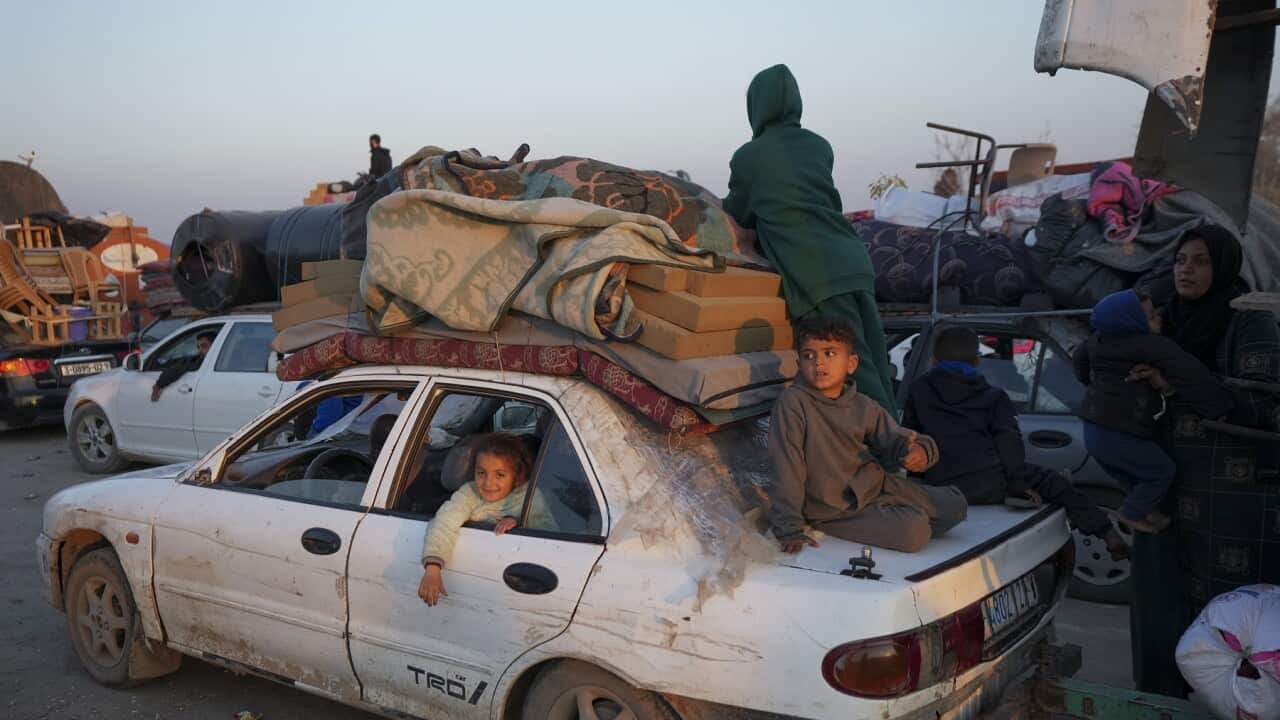TRANSCRIPT
Iran's Supreme Leader, Ayatollah Ali Khamenei, has vowed that his regional allies will continue fighting Israel, while defending his country's recent missile strike.
His remarks in Tehran followed Iran’s second-ever direct attack on Israel on the 1st of October, when around 180 ballistic missiles were launched at military targets.
Speaking ahead of the anniversary of Hamas's 7th October attack on Israel, in which about 1,200 people were killed and 250 taken hostage, Mr Khamenei defended the assault on Israeli forces and warned of future strikes if necessary.
"What our armed forces did was the minimum punishment for the usurping Zionist regime's astonishing crimes. The vampire, wolfish regime, America's rabid dog in the region. ... What military and political decision makers deem logical, wise and right will be done in due time. It was done recently, and in future it will be done again if necessary."
The US military has carried out 15 strikes on Iran-aligned Houthi targets in Yemen, hitting military outposts and an airport.
The US says the strikes aimed to disable Houthi offensive capabilities.
Since November, the Houthis have launched nearly 100 attacks on Red Sea ships, citing solidarity with Palestinians in Gaza.
They have sunk two vessels, seized another, and killed at least four seafarers.
This comes as US President Joe Biden says if he were in Israel's position, he would consider alternatives to striking Iranian oil fields in any retaliatory strike on Iran for its ballistic missile attack on the 1st of October.
"The Israelis have not concluded how or what they're going to do in terms of a strike, that's under discussion. I think, if I were in their shoes, I'd be thinking about other alternatives than striking oil fields."
Flares and explosions lit up the sky over Kiryat Shmona, near the Lebanon border on Friday, as sirens sounded.
Israeli air defence systems intercepted several rockets launched from Lebanon, as Israeli forces and Iran-backed Hezbollah militants exchanged fire.
Israel says its operations in Lebanon seek to allow tens of thousands of its citizens to return home after Hezbollah bombardments during the Gaza war forced them to evacuate from its north.
According to Lebanon's health minister, Firass Abiad, nearly 2,000 people have been killed since Israeli attacks began last year, including 127 children, with most of the casualties occurring in the past two weeks.
He has denounced Israel for what he says are indiscriminate attacks on civilians and Lebanon's health care infrastructure.
"Just in the past almost 48 hours, we've recorded almost 39 health care workers who have been killed. If you look from the beginning of the events in last October, we have gone beyond 120 casualties. We've seen [that] almost more than 20 hospitals, medical centres have been attacked. We've seen almost 120 to 130 vehicles that have been targeted. So, unfortunately, the same playbook that we saw in Gaza, where hospital facilities, health facilities and health personnel were targeted, [is] here as well. Israel [is] repeating the same playbook in Lebanon."
The most recent medical facility to be attacked was the Salah Ghandour hospital in Bint Jbeil in southern Lebanon where nine members of the hospital's medical and nursing staff were injured.
Spokesperson for UN Secretary-General Antonio Guterres, Stephane Dujarric, says he is very concerned about the increasing toll on civilians across the immediate region.
"Beirut residential areas, as you know, were once again subjected to intense overnight Israeli airstrikes, apparently injuring rescue workers. Also, strikes continued unabated in other parts of Lebanon. The toll on civilians from this campaign is totally unacceptable. All parties must do whatever they can at all times to protect civilians and civilian infrastructure and ensure that civilians are never put in harm's way.”
In Gaza, the Palestinian Ministry of Health has posted on Facebook that Israel has targeted three families there, killing 14 people and injuring 50.
The number of Palestinians killed has now risen to 41,802 with 96,844 injuries since the 7th of October last year.
This comes as a key road connecting the border crossing between Lebanon and Syria has been cut off by an Israeli air strike.
UNHCR spokesperson Rula Amin says the road was the main escape route for hundreds of thousands of people to flee Israeli bombardments in recent days.
"The government estimates up to a million people have fled to places across Lebanon, and more than 185,000 people had actually chosen to cross the border to Syria, mainly through the Masnaa/Jdaidit Yabws border crossing. The Israeli airstrikes overnight targeting the road in the no man's land at the Masnaa border crossing has put a halt on traffic, effectively closing off this route for vehicles at this crossing. And this is the main entry point for tens of thousands of people, and has been the main entry point for those people in the past week."
This comes as Australia's federal government says it is open to organising more evacuations for its nationals in Lebanon.
Two charter flights will leave Beirut for Cyprus today, with room for up to 500 Australians.
Qantas has confirmed they have agreed to run an additional special mercy flight between Larnaca and Cyprus on Monday evening local time, with a second Dreamliner service to depart on Wednesday.
Qantas spokesperson Ben Holland says the airline is drawing on its experience from previous evacuations it has conducted.
"We've received a request from the Australian government to assist in the repatriation of Australians from the Middle East. Consequently we've activated the teams that look into specific flights... We've got a lot of experience in doing this over the years, and those teams have been involved in assessing the viability of the route and the airport, and also the aircraft that will be used to assist."













